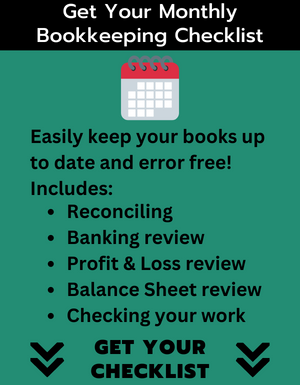When you run a bookkeeping business, clients sometimes don’t fully understand the difference between hiring a contractor vs. an employee.
They may expect you to work set hours, use their company email, or even report to a supervisor—all signs that they might be treating you more like an employee than an independent contractor.
So, how do you explain to clients that you are a business owner, not an employee? And what do you need to know about W-9s, 1099s, and the legal side of independent contracting?
If you’ve ever been in this situation, this post will walk you through key differences between an independent contractor vs employee, how to set expectations with clients, and what paperwork you should (and shouldn’t) provide.
How to Explain to Clients That You Are an Independent Contractor
If a client asks you to fill out a W-4 form, follow a strict work schedule, or report to a manager, they may misunderstand your role.
The easiest way to explain it is by using familiar examples:
💬 “Hiring me is like hiring a lawyer, graphic designer, or marketing consultant. You pay for the service but don’t manage my schedule or tell me what software to use.”
If the client insists on treating you like an employee, they may be looking for a staff bookkeeper—and that’s not your role.
Common Signs That a Client Thinks You Are an Employee
- They ask for a resume – As a business owner, you don’t submit resumes. Instead, direct them to your website, testimonials, or LinkedIn profile.
- They request a company email – If a client wants you to use [yourname]@theirbusiness.com, that’s a red flag. Independent contractors should use their own business email.
- They want you to attend team meetings – While occasional finance meetings make sense, you don’t need to be part of weekly staff check-ins.
- They require you to work certain hours – Clients can set deadlines, but they shouldn’t dictate when or how you work.
- They ask you to log hours in their time-tracking software – This is not standard for independent contractors. You should invoice based on your contract terms, not hourly tracking dictated by the client.
If you notice these signs, clarify expectations early to avoid confusion.
Do Bookkeepers Need to Provide a W-9?
A W-9 form is used to provide your Taxpayer Identification Number (TIN) so that clients can issue a 1099-NEC at year-end.
Do You Need to Provide a W-9 to Every Client?
✅ Yes, IF:
- The client pays you $600+ in a calendar year.
- They pay you directly via cash, check, or bank transfer (not through a third-party payment processor).
❌ No, IF:
- You were paid through PayPal, Stripe, or QuickBooks Payments (they issue a 1099-K instead).
- You operate as an S-Corp or C-Corp (most corporations are exempt from receiving a 1099-NEC).
💡 Pro Tip: Always provide your EIN instead of your Social Security Number (SSN) to protect your identity.
What’s the Difference Between a 1099-NEC and a 1099-MISC?
Bookkeepers commonly deal with two types of 1099 forms:
- 1099-NEC (Non-Employee Compensation) – Used to report payments to independent contractors for services.
- 1099-MISC (Miscellaneous Income) – Used for rent, prizes, legal settlements, and non-service payments.
Most bookkeepers only receive a 1099-NEC unless they also receive rental income or other non-service payments.
💡 Reminder: If you’re paid through PayPal, Square, or Stripe, you’ll receive a 1099-K instead of a 1099-NEC.
How to Protect Yourself as an Independent Contractor
To avoid misunderstandings and compliance issues, make sure you:
- Have a solid engagement letter – Outline the scope of work, payment terms, and independent contractor status.
- Use your own software & tools – Clients shouldn’t require you to use their internal company systems unless necessary for bookkeeping (e.g., QuickBooks Online).
- Set boundaries with communication – Let clients know how and when you communicate (e.g., “I respond to emails within 24 hours, Monday-Friday.”)
- Keep business and personal finances separate – Use a business bank account and get an EIN to avoid using your SSN on tax forms.
What If a Client Tries to Treat You Like an Employee?
If a client starts treating you like an employee, take these steps:
- Politely remind them that you are a business owner –
💬 “Just a quick clarification—I work as an independent contractor, which means I manage my own schedule and workflow.” - Reinforce boundaries in your contract – If they ask for employee-like commitments, refer to your engagement letter.
- Decide if the client is a good fit – If they insist on treating you like an employee, they may not be the right client for your business.
💡 Example Response:
“It sounds like you’re looking for an in-house bookkeeper rather than a contractor. If that’s the case, I’d be happy to refer you to a staffing agency that can help.”
This way, you keep the conversation professional while maintaining your business independence.
Independent Contractor vs Employee: The Legal Risks for Clients
Clients who misclassify independent contractors as employees could face serious tax and legal consequences.
If a business incorrectly classifies a contractor as an employee, they may owe:
- Back taxes (FICA, Medicare, Social Security).
- Penalties & interest for failing to withhold payroll taxes.
- Unpaid employee benefits (if required by law).
If a client pushes back on your independent status, remind them:
💬 “The IRS has strict guidelines on independent contractors vs employees. If I were classified as an employee, you’d be responsible for payroll taxes and benefits.”
Most businesses don’t want that liability, so they’ll adjust once they understand the legal risks.
Final Thoughts on Independent Contractor vs Employee for Bookkeepers
As a bookkeeper, you are a business owner—not an employee. If a client expects you to work set hours, use their email, or follow strict company policies, they may not understand the difference.
Key Takeaways:
- Independent contractors control their own work schedule and processes.
- Clients should NOT treat you like an employee—no company email, fixed hours, or team meetings.
- W-9s are only required if clients pay you directly (not via third-party processors like PayPal).
- A 1099-NEC is issued for services; a 1099-K is issued for third-party payments.
- Misclassifying a contractor as an employee can result in IRS penalties for the client.
Educating clients and setting boundaries early allows you to maintain your independence while providing top-tier bookkeeping services.
Have you ever dealt with a client misunderstanding your role as a contractor? Share your experience in Gentle Frog’s Bookkeeping Lily Pad Facebook group!





